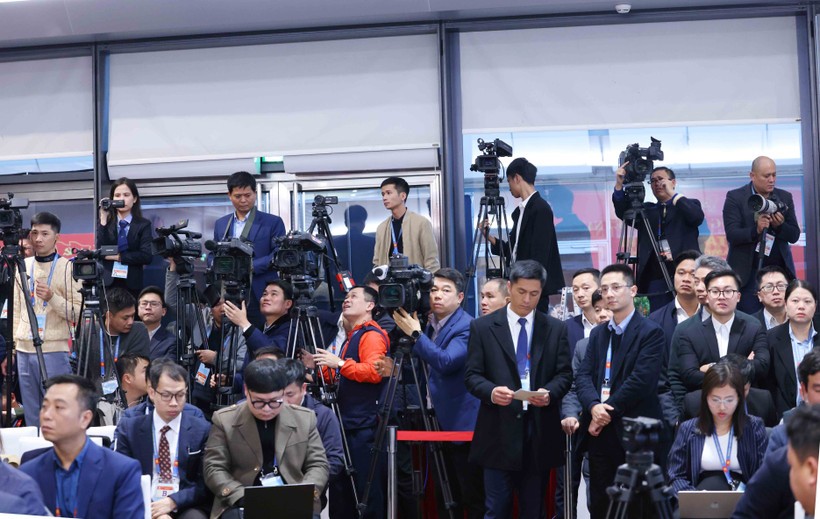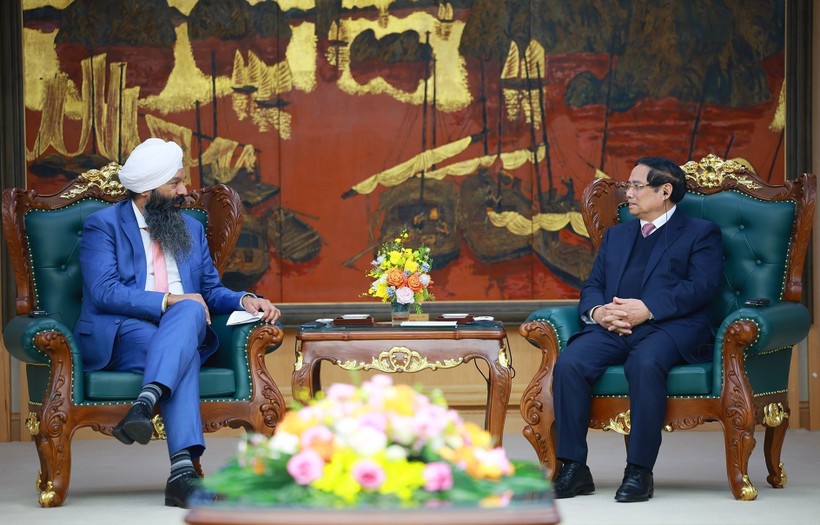Vietnam News Today (Jul. 10): E-visa Policy Set to Foster Vietnam – Turkey Tourism Cooperation
| Vietnam News Today (Jul. 8): Vietnam Considers South Africa Leading Strategic Partner in Africa | |
| Vietnam News Today (Jul. 9): Vietnam Promotes Comprehensive Approach to Human Rights in ASEAN |
| Vietnam News Today (Jul. 10) notable headlines PM’s Brazil trip strengthens ties, promoting Vietnam’s global role Vietnam values Comprehensive Strategic Partnership with United States Vietnam proposes three priorities to strengthen ASEAN’s centrality E-visa policy set to foster Vietnam – Turkey tourism cooperation Vietnam’s economic surge draws global investors despite headwinds: Techcombank Intense heat hits peak in Northern Vietnam before heavy rain arrives Vietnam emerges as magnet for global investment amid economic uncertainties Tourism rebound fuels Vietnam’s economic ambitions for 2025 iTech Expo 2025 highlights global innovations and tech trends |
PM’s Brazil trip strengthens ties, promoting Vietnam’s global role
Prime Minister Pham Minh Chinh, his spouse, and a high-level Vietnamese delegation have concluded a successful working trip to Brazil, where they attended the BRICS+ Summit and conducted bilateral activities.
This marked the third consecutive year the PM has traveled to Brazil to promote Vietnam’s international engagement. Over three intensive days in Rio de Janeiro, the delegation participated in nearly 40 engagements.
Vietnam’s presence at BRICS Summit
Held under the theme “Strengthening Global South Cooperation for More Inclusive and Sustainable Governance,” the 2025 BRICS Summit brought together 35 heads of state, and representatives of partner countries, international organizations, and financial institutions.
Vietnam, as a partner country, made a strong impression with PM Chinh delivering speeches at two of the summit’s three high-level sessions.
At the session on “Strengthening Multilateralism, Economic–Financial Issues, and Artificial Intelligence,” PM Chinh proposed three strategic initiatives to promote multilateral cooperation in those areas. At another session on “Environment, COP30, and Global Health,” he put forward five strategic principles, emphasizing fairness, justice, resource emphasizing, technological innovation, and effective governance – two issues that are critical to humanity now and in the future.
Brazil’s Deputy Minister of Science, Technology, and Innovation, Inacio Arruda, praised Vietnam’s growing global stature and noted that its presence made BRICS stronger in Asia.
Foreign Deputy Minister Nguyen Minh Hang said that PM Chinh has conveyed a strong message about strengthening multilateral cooperation as well as affirming the role of developing countries in the global governance system, according to VNA.
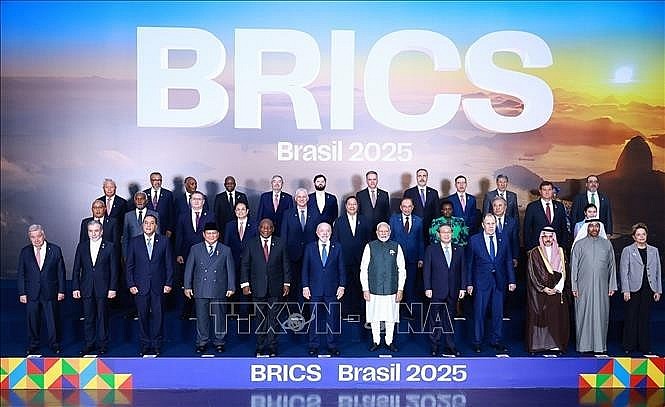 |
| Prime Minister Pham Minh Chinh and heads of delegations attending the 2025 BRICS Summit pose for a group photo (Photo: VNA) |
Leaders of countries and international organizations highly appreciated Vietnam's proposals as well as highlighted Vietnam's proactiveness and responsibility in contributing to solidarity, strengthening cooperation and dialogue to address challenges of the international community.
On this occasion, PM Chinh held bilateral meetings with nearly 20 world leaders and heads of organizations, including the Presidents of Cuba, Indonesia, South Africa, Nigeria, Chile, and Uruguay; the Prime Ministers of China, Malaysia, and India; and the heads of the UN, WTO, and WHO. He reiterated Vietnam’s readiness to be a trusted friend and reliable partner, offering practical ideas to deepen cooperation in various areas.
Vietnam-Brazil ties
Alongside the summit, PM Chinh conducted bilateral activities in Brazil to enhance multifaceted ties, especially in trade and investment.
He met with Brazilian President Luiz Inácio Lula da Silva to review the implementation of their Joint Statement and Strategic Partnership Action Plan for 2025–2030. President Lula noted that although no relationship is ever perfect, both sides are committed to making theirs “as perfect as possible.”
Brazil’s Deputy Minister of Agriculture, Livestock and Food Supply Luis Renato Alcantara Rua hailed the key partnership and the fresh outcomes.
Notably, the two sides will sign an agreement to ensure stable, long-term food security for Brazil; boost cooperation in the coffee sector by forming an alliance, establishing a trading platform, developing branding, and elevating coffee appreciation culture.
They also consented to accelerate talks for the Vietnam–MERCOSUR Free Trade Agreement (FTA), as well as the Vietnam–Brazil FTA and another on investment promotion and protection.
During his visit, PM Chinh laid flowers at a memorial honoring President Ho Chi Minh in Rio de Janeiro and visited the Vasco da Gama Football Club.
With a focus on businesses as key drivers of economic ties, PM Chinh attended the Vietnam–Brazil Business Forum and met with nine leading Brazilian and global corporations to promote cooperation in high-tech agriculture, mining, biofuels, food processing, and aviation, among other fields.
He called on enterprises to translate the strong political foundation into tangible economic outcomes, saying: “Let our friendship and sincerity be measured in real, practical results that benefit both countries.” He reaffirmed Vietnam’s commitment to creating favourable conditions for Brazilian investors to do business successfully and sustainably.
Fabio Maia de Oliveira, Investment Director at JBS Group - the world’s leading food processing corporation - said Vietnam is a top choice for investment thanks to its dynamic economy, young workforce, and strong infrastructure. JBS sees Vietnam as a future manufacturing and distribution hub for Asia, including access to major markets like China.
One highlight was the signing of six cooperation agreements in science-technology, digital transformation, sports (particularly football), agricultural production, and the import-export of beef and Vietnamese fish (such as pangasius and tilapia). Notably, PM Chinh witnessed the first shipment of Brazilian beef to Vietnam.
Brazil’s Deputy Minister Alcantara Rua called the visit “historic”. For the first time, Brazil has exported beef to Vietnam, and Vietnam has exported tilapia fillets to Brazil. These reflect a trusted and mutually beneficial agricultural partnership.
PM Chinh’s trip to Brazil has been widely recognized as a significant success. It helped deliver on key goals of Vietnam’s international integration strategy, as outlined in the Politburo’s Resolution 59-NQ/TW. It also showcased Vietnam’s consistent foreign policy of independence, self-reliance, multilateralization and diversification, and comprehensive, intensive, extensive and effective international integration.
The visit brought concrete benefits not just in diplomatic and economic terms, but also in reinforcing mutual understanding, expanding Vietnam’s global footprint, and building new bridges between continents - firmly positioning Vietnam as a proactive contributor to peace, cooperation, and sustainable development in the region and beyond.
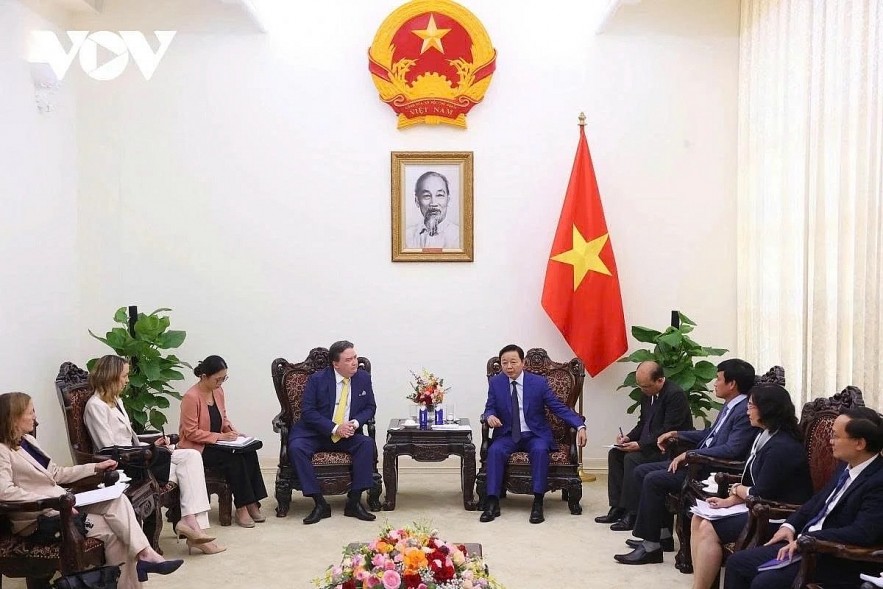 |
| Vietnamese Deputy Prime Minister Tran Hong Ha and US Ambassador to Vietnam Marc Knapper during their meeting in Hanoi on July 9. |
Vietnam values Comprehensive Strategic Partnership with United States
Vietnam considers the United States a strategic partner in economic and trade development and wishes to further enhance the Comprehensive Strategic Partnership in a substantive and effective manner, based on mutual respect and a shared vision for the future.
Deputy Prime Minister Tran Hong Ha was speaking during his reception in Hanoi on July 9 for US Ambassador to Vietnam Marc Knapper and a working delegation from the United States Agency for International Development (USAID).
Ha highlighted the significance of the upcoming 30th anniversary of the establishment of diplomatic relations between Vietnam and the United States (July 11, 1995 – 2025). He noted this milestone as a testament to the two countries’ efforts to overcome past differences, foster reconciliation and cooperation, and build a Comprehensive Strategic Partnership, in the spirit of breaking with the past and looking to the future.
Emphasizing that the US is a key strategic partner for Vietnam in the areas of economy and trade, the Deputy Prime Minister stressed the need to address remaining barriers, particularly in trade, investment, and high technology. He urged the US to soon recognise Vietnam as a market economy, which would facilitate greater access to US technology, especially in strategic sectors such as energy, mining, and advanced manufacturing, cited VOV.
Vietnam is ready to engage in comprehensive cooperation with the US, based on transparency, fairness, and shared benefits, he assured his guests.
The Deputy Prime Minister also expressed Vietnam’s strong desire for US support in developing artificial intelligence (AI), through technology transfer, investment, training, and joint ventures, envisioning AI as a new symbol of bilateral cooperation in the future.
He praised the Ambassador for his active contributions to promoting cooperation across various fields, including effective connections between the two governments and between businesses and state agencies, particularly in economic, trade, and climate change-related initiatives.
For his part, Knapper highlighted the significance of the 30th anniversary of normalized relations between the two countries. He affirmed the United States’ commitment to accompanying Vietnam in achieving its national development goals of becoming a green economy by 2050, a high-income economy by 2045, and a high-tech economy in the future.
The United States is eager to expand cooperation in high technology, AI, strategic mineral supply chains, data, and education, he said.
During the meeting, USAID representatives announced the agency’s plan to close its office in Vietnam as part of a global restructuring initiative by the US government. However, USAID will continue to transition important programs such as HIV/AIDS prevention, war legacy remediation, environmental protection, and public health to the US Department of State to maintain long-term engagement.
Deputy Prime Minister Tran Hong Ha acknowledged USAID’s practical and enduring contributions over the past three decades, calling the agency a vital cultural and economic bridge that has helped build trust between the two countries. He affirmed that USAID’s mission and bilateral cooperation would continue to be sustained and further enhanced.
Vietnam proposes three priorities to strengthen ASEAN’s centrality
Deputy Prime Minister and Minister of Foreign Affairs Bui Thanh Son has proposed three key priorities to reinforce ASEAN’s central role amid rising regional and global uncertainties at the plenary session of the ASEAN Foreign Ministers’ Meeting in Kuala Lumpur on Wednesday.
His proposals included driving economic growth to make ASEAN the world’s fourth-largest economy by 2030, building a leading digital community and deepening people-to-people connectivity to advance a more inclusive and action-oriented ASEAN.
The plenary, which followed the official opening of the 58th ASEAN Foreign Ministers’ Meeting (AMM-58), focused on implementing decisions made at the 46th ASEAN Summit and charting the path forward for ASEAN Community-building efforts.
Ministers emphasized the need to sustain ASEAN’s role as a platform for cooperation, dialogue and strategic trust. They also agreed to accelerate the implementation of the ASEAN Community Vision 2045 and associated strategies, calling on all ASEAN sectoral bodies to identify priorities and translate high-level directions into concrete actions.
Particular emphasis was placed on enhancing intra-regional trade and investment, facilitating trade, expanding connectivity in infrastructure, energy grids, digital networks and diversifying external partnerships. Ministers also stressed the importance of strengthening ASEAN’s resilience to emerging growth drivers and responding to the impacts of climate change, natural disasters and extreme weather events.
Son reaffirmed the core values that underpin ASEAN’s success, including unity and mutual respect. In today’s volatile environment, he noted, ASEAN’s centrality, unity and strong commitment to inclusive and sustainable development must continue to serve as guiding principles.
Building on that foundation, he put forward three strategic directions:
First, ASEAN must prioritize robust economic growth to achieve its target of becoming the world’s fourth-largest economy by 2030. This involves deepening intra-regional economic integration and effectively implementing the upgraded ASEAN Trade in Goods Agreement (ATIGA), while leveraging existing FTAs with partners and expanding inter-regional linkages, particularly through the Regional Comprehensive Economic Partnership (RCEP). ASEAN should also capitalize on e-commerce to unlock internal trade potential and expand into new markets and supply chains.
Second, ASEAN should accelerate negotiations on a Digital Economy Framework Agreement that meets real-world needs, especially for micro, small and medium-sized enterprises. New growth drivers like digital transformation and innovation ecosystems should be embedded into ASEAN’s cooperation frameworks with external partners to attract resources and technical support. These efforts must also be reflected in ASEAN’s own programmes and subregional cooperation initiatives. As Chair of the ASEAN Initiative for ASEAN Integration (IAI) Task Force, Vietnam will coordinate the implementation of these initiatives under the next IAI Work Plan.
Third, ASEAN must deepen its engagement with the people. Beyond high-level declarations, ASEAN’s presence must be felt through concrete and meaningful actions. The region’s communication strategy should be enhanced to widely promote ASEAN’s achievements and contributions through real stories of individuals and communities. Vietnam will soon develop a national implementation plan for ASEAN’s strategic 2045 documents to bring ASEAN closer to its citizens, businesses, and localities.
Son also reaffirmed Vietnam’s support for Timor-Leste’s accession to ASEAN and its readiness to assist the country in fulfilling membership criteria, including participation in legal instruments. He called on ASEAN to develop a clear roadmap to support Timor-Leste’s effective integration and full implementation of member obligations, VNS reported.
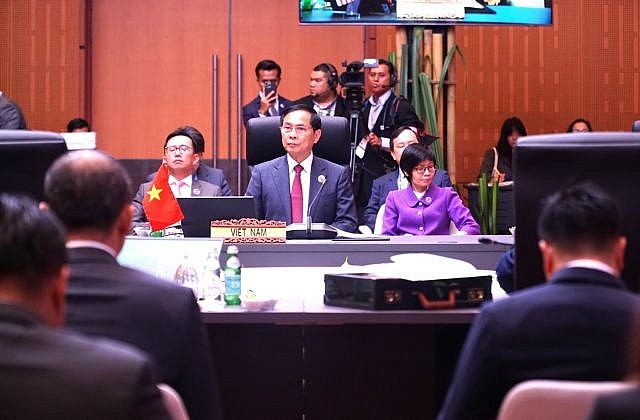 |
| Deputy Prime Minister and Minister of Foreign Affairs Bui Thanh Son at the plenary session of the ASEAN Foreign Ministers’ Meeting in Kuala Lumpur on July 9. Photo: VNS |
Earlier, in his opening address to AMM-58, Malaysian Prime Minister Anwar Ibrahim stressed the need for ASEAN to remain proactive, strategically autonomous and united in shaping the region’s future amid mounting global volatility.
He said ASEAN’s true strength lies in its solidarity, cohesion and commitment to overcoming differences through mutual respect, dialogue and consensus.
He warned against the weaponisation of economic tools for geopolitical competition and urged ASEAN to act with clarity and resolve. ASEAN, he emphasized, must determine its own path with purpose, vision, and ambition. It should promote meaningful integration and stronger coordination across diplomatic and economic pillars to build an inclusive and sustainable economy.
PM Anwar also highlighted key cooperation areas that directly benefit people, including connectivity, food security, digital transformation, education, healthcare and climate resilience.
He expressed hope to welcome Timor-Leste as ASEAN’s next official member and called on member states to support its integration not only institutionally but as part of ASEAN’s shared regional vision.
E-visa policy set to foster Vietnam – Turkey tourism cooperation
Starting September 1, 2025, Turkey will officially implement an electronic visa (e-visa) policy for Vietnamese citizens, creating fresh momentum for bilateral tourism cooperation.
Proactive market access through open policy
Vietnamese passport holders can apply online via https://evisa.gov.tr/en for an e-visa valid for 180 days, allowing a maximum stay of 30 days, without requiring financial or employment proof. The visa is issued within about 10 minutes.
Besides the favorable visa policy, Turkey now offers direct flights from Hanoi and Ho Chi Minh City to Istanbul, with a flight time of approximately 11 hours, facilitating pure tourism and transit connections to Europe and Africa.
During meetings between the Turkish Embassy in Vietnam, Turkish tourism businesses, and the UNESCO Hanoi Travel Club (HUTC), they agreed to promote two-way tourism between Vietnam and Turkey, develop Halal tourism products, and organize famtrip surveys and connect businesses to create new, high-quality tourism products.
Truong Quoc Hung, chairman of the HUTC, emphasised that the e-visa policy serves as a catalyst for promoting tours and developing Halal tourism products. He voiced the firm’s commitment to connecting member businesses to swiftly develop offerings which are capable of meeting the demands of both markets, cited VOV.
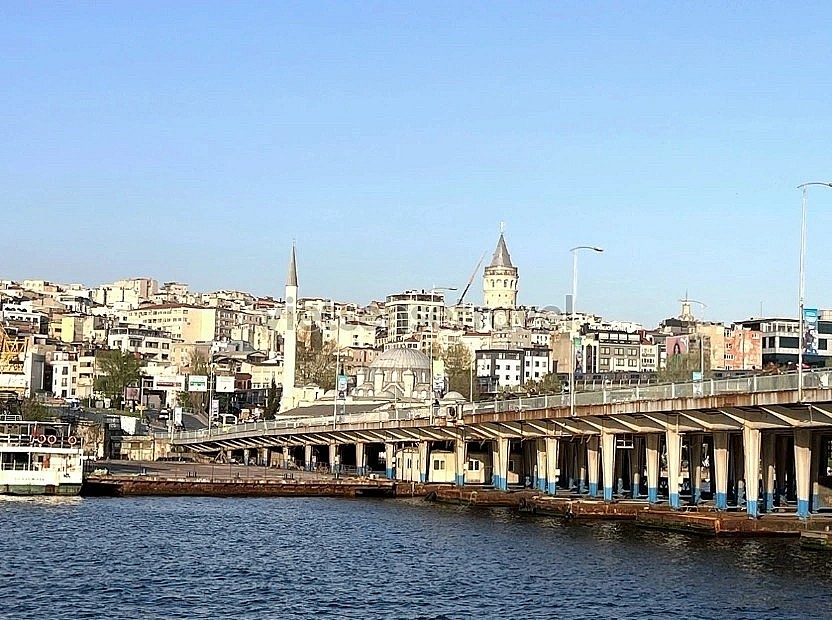 |
| Iconic destinations in Turkey like Istanbul, Pamukkale, and Cappadocia attract Vietnamese tourists. |
Meanwhile, Turkish Ambassador Korhan Kemik praised the professional promotion efforts and proactive spirit of Vietnamese businesses, especially HUTC, in developing creative and sustainable tourism products aligned with international markets.
Turkey – a captivating destination for Vietnamese travelers
Pham Tien Dung, vice chairman of the HUTC and CEO of Golden Tour, the e-visa policy is a breakthrough unlocking Turkey’s market — a rising destination for Vietnamese tourists. Popular tours include 9-day trips covering Istanbul, Pamukkale, and Cappadocia, featuring unique experiences like hot-air balloon rides over stunning rock valleys, Bosphorus cruises, and stays in 4- to 5-star cave hotels.
Turkish cuisine has also adapted to Asian markets. Many restaurants in Istanbul and major tourist spots now offer dishes catering to Chinese, Korean, and Thai tastes, making the journey more enjoyable for Vietnamese travelers.
Conversely, Doan Ngoc Tung, vice president of the HUTC and CEO of MTV Travel, stated that Vietnam is a highly attractive destination for Turkish and Middle Eastern tourists due to its rich cultural identity, diverse natural landscapes, and safe, friendly environment. Expanding inbound routes combined with Halal tourism products in Vietnam is a vital strategy to tap into the Turkish market.
To support businesses in taking full advantage of the e-visa policy, HUTC will collaborate with the Turkish Embassy to hold a workshop in mid-July 2025, featuring the Ambassador and market experts. The workshop will provide detailed information on the e-visa process, flight conditions, Halal market trends, and address travel agencies’ concerns.
HUTC will also participate in the ITF International Tourism Fair in Turkey on September 24 - 25, with a dedicated booth showcasing Vietnamese tourism in partnership with the Vietnam National Authority of Tourism. The event will include a famtrip delegation to conduct market surveys, connect partners, and expand the bilateral tourism market.
Vietnam’s economic surge draws global investors despite headwinds: Techcombank
Amid global economic uncertainty, Vietnam is recognised as an attractive destination for foreign investment, buoyed by macroeconomic stability, bold reforms, and a business-friendly climate, heard at the Techcombank Investment Summit in Hanoi on July 9.
Deputy Prime Minister Ho Duc Phoc told attendees that Vietnam remains steadfast in fostering a transparent and equitable environment for both local and foreign investors. He outlined four recent Politburo resolutions bolstering private sector growth, deeper global integration, sci-tech innovation, and streamlined legislation. Revisions to 28 laws are also in progress to cut red tape, free up resources, and level the playing field.
The Vietnamese economy is thriving, with robust 7.52% growth in the first half, among the highest in the region. The Government has set an 8% growth target for this year, with an eye toward 10% by 2030, signalling confidence in its long-term trajectory, cited VNA.
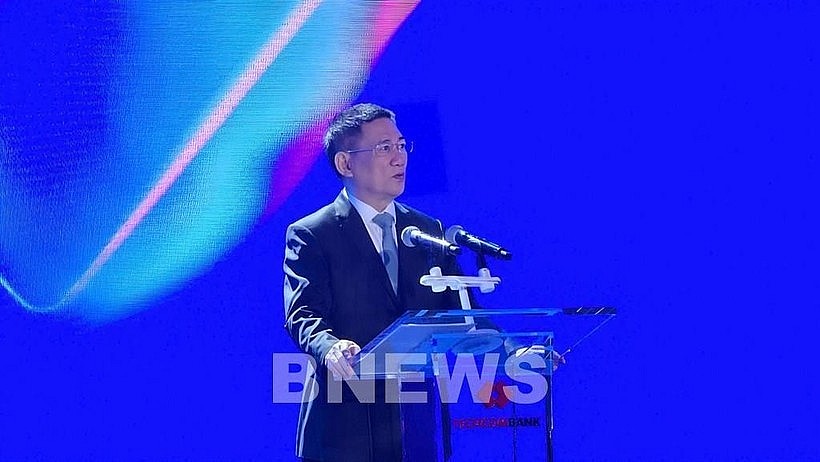 |
| Deputy Prime Minister Ho Duc Phoc (Photo: VNA) |
Major infrastructure projects are fueling this optimism. The first phase of Long Thanh International Airport, set to join the world’s six largest, is complete. Saigon Port has climbed to the top of Vietnam’s port rankings, while plans for the Lao Cai-Hai Phong expressway and the Hanoi-Ho Chi Minh City high-speed railway underscore the country’s connectivity push.
Dr. Tamara Henderson, a senior economist at Bloomberg, cited climate change, rising protectionism, and the tech boom as key forces reshaping global investment flows.
Vietnam, she said, is capitalizing on its push for digital transformation, sustainable energy, and solid fiscal health. Its young, dynamic workforce is a major draw, but she cautioned that to fully leverage this demographic edge, deeper reforms in education and vocational training are critical for competing in the digital economy.
Jens Lottner, CEO of Techcombank, pushed for a faster pivot to a tech-driven economy, praising recent legal reforms that are paving the way for greater innovation.
Meanwhile, Deputy Director of the State Bank of Vietnam’s Credit Department for Economic Sectors Tran Anh Quy said banks are stepping up with easier credit, loan restructuring, and lower interest rates to help firms navigate any lingering difficulties and fuel recovery.
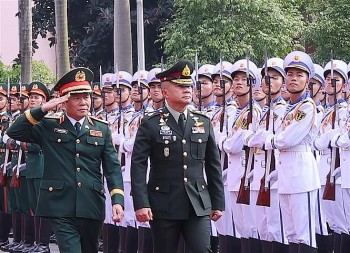 | Vietnam News Today (Jul. 5): Vietnam, Thailand Pledge to Deepen Military Ties Vietnam News Today (Jul. 5): Vietnam, Thailand pledge to deepen military ties; Southern megacity posts 7.5% economic growth in first half; Vietnam leads UNHRC discussion ... |
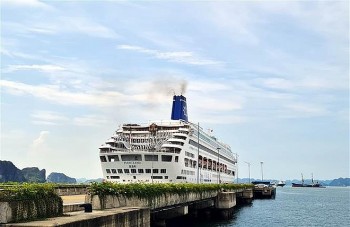 | Vietnam News Today (Jul. 7): Vietnam to report achievements in implementation of Int’l Covenant on Civil and Political Rights; Swiss firms pin high hopes on ... |
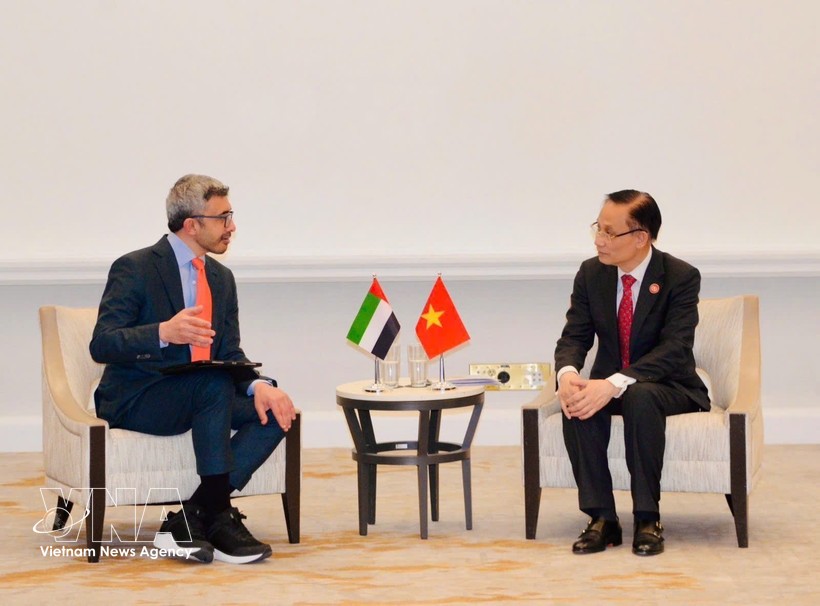 National
National
Vietnam News Today (Feb. 22): Vietnamese FM Meets Counterparts of UAE, Egypt and Türkiye
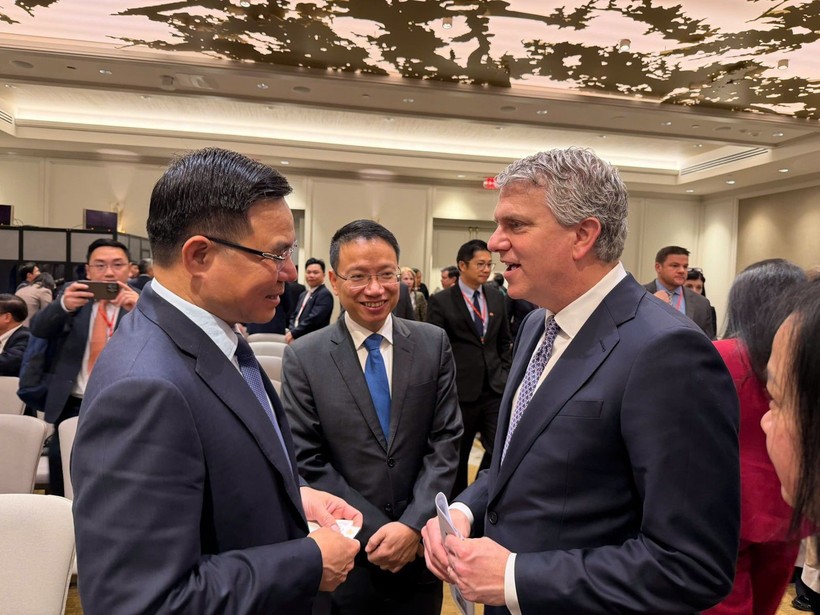 National
National
Vietnam News Today (Feb. 21): Vietnam, US Step Up Dialogue to Facilitate Trade Ties
Recommended
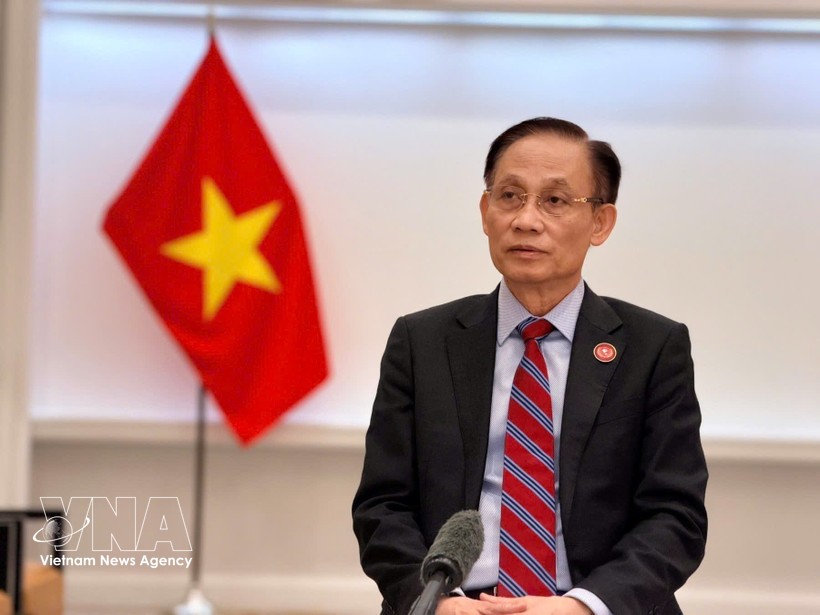 National
National
Party Chief’s US Trip Marks Milestone in High-level Multilateral Diplomacy: FM
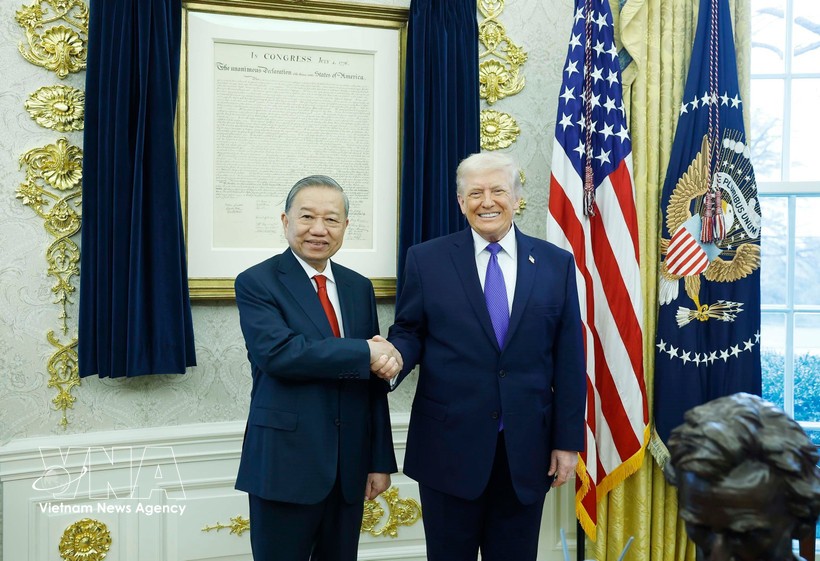 National
National
Party General Secretary To Lam Meets US President Donald Trump at White House
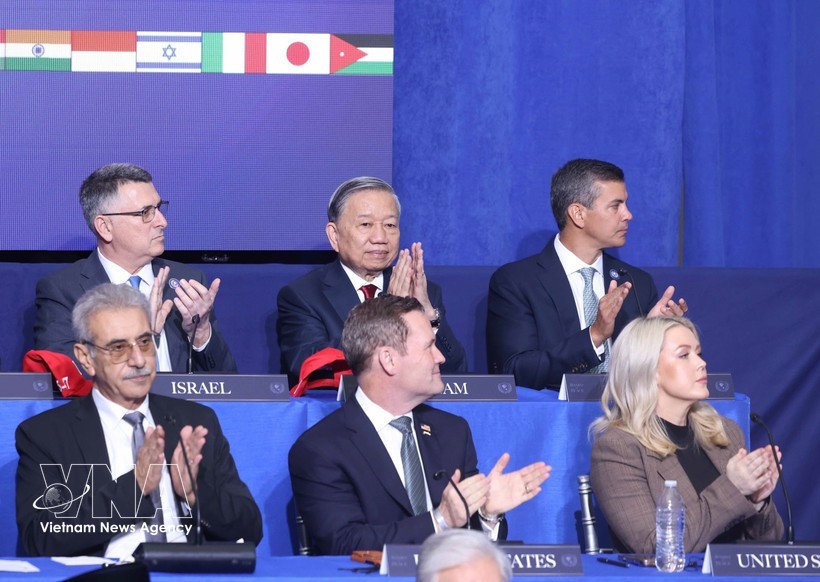 National
National
Party General Secretary To Lam Attends Inaugural Meeting of Gaza Board of Peace in US
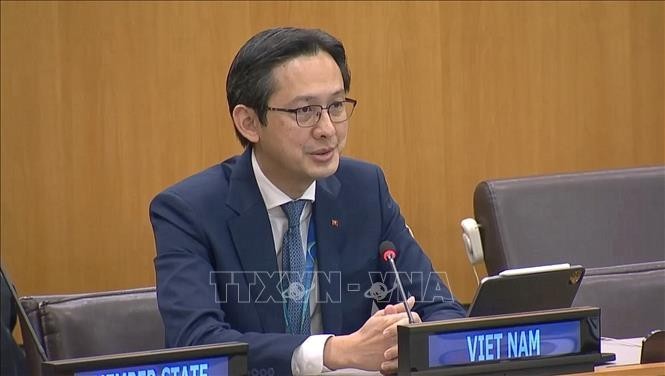 National
National
Vietnam Promotes Multilateral Dialogue on Nuclear Non-proliferation Ahead of the 2026 NPT Review Conference
 National
National
Vietnam News Today (Feb. 22): Vietnamese FM Meets Counterparts of UAE, Egypt and Türkiye
 National
National
Vietnam News Today (Feb. 21): Vietnam, US Step Up Dialogue to Facilitate Trade Ties
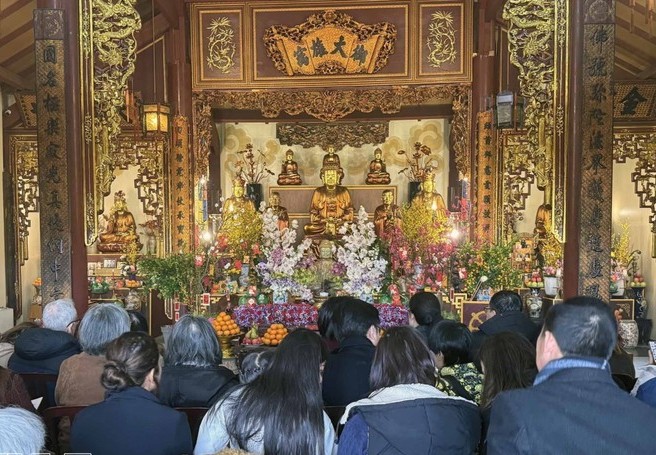 National
National
Vietnam News Today (Feb. 19): Vietnamese in France Cherish Traditional Practices During Tet
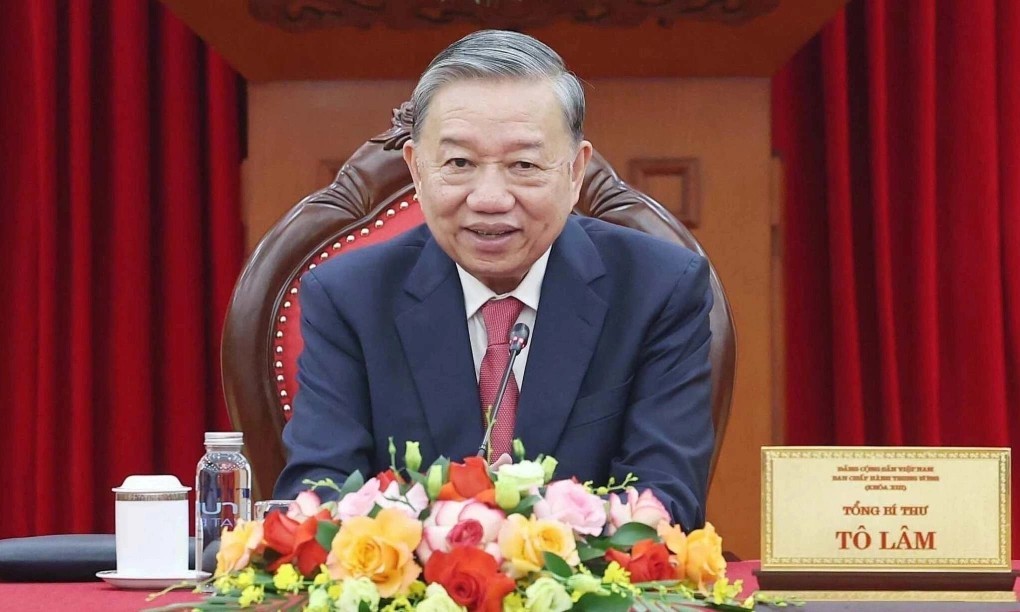 National
National

